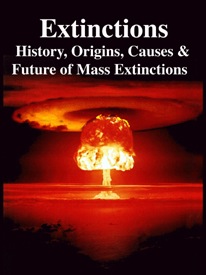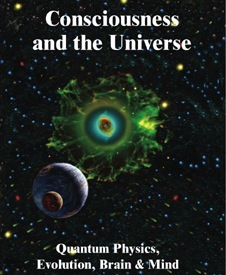|
|
|||||||||||||||
Journal of Cosmology, 2009, Vol 1, pages 81-83. Cosmology, 2009 Life Without Origins? Robert Shapiro, Ph.D., Professor Emeritus and Senior Research Scientist, Department of Chemistry, New York University
Dr. Joseph begins his article with the assertion that “only life can produce life.” This statement permeates the manuscript and abstract. Unless he allows for the possibility of abiogenesis, this position would invalidate the central thesis of the article. The assertion is supported by statements such as “no one has demonstrated of proved that life can be produced from non-life” and “there is no evidence to support the belief that life can be produced from non-life” (Joseph 2009a). Can we accept Joseph's argument as fact? As Carl Sagan wrote: “absence of evidence is not evidence of absence.”
If abiogenesis is a complete impossibility, then what is the origin of life? Without an explanation for life's origins Dr. Joseph avoids the question and weakens his argument. How could it be that life migrated to Earth from fragments remaining from a predecessor planet-star system, if the abiotic origin of life on that parent system is also impossible?
Dr. Joseph does venture one sentence at an early point “Certainly it is possible that life may have begun on an ancient world whose chemistry is different than Earth.” Other advocates of panspermia, for example Francis Crick (1981) have also adopted this hypothesis. But Dr. Joseph does not proceed further with this theme other than to grant the possibility that billions of years before the formation of the Earth, life may have begun in an environment or on a planet with chemistry different from this planet. However, he explicitly denies this possibility when he states that “only life can produce life.”
At a later point, the author declares “In this article no attempt is made to explain the origins of life.” However, only a few logical possibilities exist for this question, in the largest sense. If he subtracts the one embraced by most scientists, that life arose from abiotic chemistry under the influence of energy, then by default, he has endorsed one of the others. The remaining options are (1) creation science and other supernatural options and (2) an infinite universe which has always existed and which has always harbored life with no origin.
A rejection of spontaneous generation is a topic that generates considerable controversy today, but it has even deeper roots. I will cite the words of the illustrous Louis Pasteur in the 1860’s, as translated by biologist and historian John Farley (1974):
“Scientific controversies are much more lively and passionate now because they have their counter-parts in public opinion, divided always between two great currents of ideas, as old as the world, which in our day are called materialism and spiritualism. What a victory for materialism if it could be affirmed that it rests on the established fact that matter organizes itself, takes on life itself; matter which has in it already all known forces!...Ah, but if we could add to it this other force which is called life…what would be more natural than to deify such matter? Of what good would it be then to have recourse to the idea of a primordial creation before which it is necessary to bow? To what good then would be the idea of a creator God?”
Clearly Dr. Joseph is anti-religion and his views are the antithesis of creationism. In fact,
he is so anti-creationism that he rejects any form of creation. Although the claim is not made
explicit in this article (Joseph 2009a), the author has rejected not just creationism and
abiogenesis, but has selected alternative (2) (see above): a universe that is infinite and eternal
and life without origin.
Most scientists and biblical religion agree that the universe had an abrupt origin, and that life appeared afterwards. However, they disagree strongly as to whether that origin was by divine creation, or by some form of spontaneous generation. Dr. Joseph, in his first paragraph, lumps the two together and rejects both. He does not make explicit his support for the remaining possibility of an eternal, infinite universe, which was described in a series of books by the late Sir Fred Hoyle and his collaborator, N.C. Wickramasinghe (Hoyle and Wickramasinghe, 1978; 1979; 1981; 1993). However, this is in fact his position.
In the final form of their theory (it has altered over the years), Hoyle and Wickramasinghe proposed that Earth was seeded with life by bacteria and viruses that inhabited the interstellar dust cloud and were transported here by comets. They rejected both the Big Bang (a term first coined by Sir Fred Hoyle) and Darwinian theory and asserted that both the Universe and life extended indefinitely into the past. In fact, the Universe itself was both alive and intelligent according to their model. A critique of these ideas appears in my own books, Origins (Shapiro, 1986) and Planetary Dreams (Shapiro, 1999).
Apparently, Dr. Joseph has integrated at least parts of this theory into his own viewpoint. In his films and other papers, he has detailed what he believes are essential flaws in the theory of the Big Bang, points out that the theory was first proposed by a Catholic priest and member of the Pope's Academy of Scientists (Monsignor and Bishop Georges Lemaître), and explicitly rejects the theory calling it "religion masquerading as science." In his book, Astrobiology, the Origin of Life and the Death of Darwinism (Joseph, 2000) and in an accompanying article which will be published by the Journal of Cosmology (Joseph 2009b) he opposes the concept of Darwinian evolution. Instead he proposes that bacteria and archae contained the genetic machinery for acquiring genes from species on other planets, through lateral gene transfer, and that once on Earth these first species began altering the Earth and the altered environment acted on gene selection. Further, he proposes that archae and bacteria may have fused their genomes to fashion the first eukaryotes (Joseph, 2009b). Darwinian evolution is replaced with a cosmic model of evolution where presumably species similar to the creatures of Earth evolve on other planets.
Therefore, what he has presented in this paper represents only a part of a larger, cohesive,
(though in my opinion, flawed) view of the cosmos. I believe that his failure to fully present, or
refer to, the other aspects of his theory in this paper reflect a significant omission of which the
reader should be made aware. He or she may judge whether they wish to accept the entire package or,
if possible, only the excerpt that Dr. Joseph presents in this article (Joseph 2009a).
References
Crick, F. 1981 Life Itself. New York, Simon and Schuster.
Farley, J. 1974. The Spontaneous Generation Controversy from Descartes to Oparin. Johns Hopkins University Press, Baltimore, p 108.
Hoyle, F. and Wickramasinghe, N.C. 1978, Lifecloud, New York, Harper and Rowe.
Hoyle, F. and Wickramasinghe, N.C. 1979. Diseases from Space, New York, Harper and Rowe.
Hoyle, F. and Wickramasinghe, N.C. 1981. Evolution from Space, New York, Harper and Rowe.
Hoyle, F. and Wickramasinghe, N.C. 1993. Our Place in the Cosmos, London, J.M. Dent.
Joseph, R. 2000. Astrobiology, the Origin of Life and the Death of Darwinism, University Press, California.
Joseph, R. 2009a. Life on Earth came from other planets. Journal of Cosmology, 1, 1-56.
Joseph, R. 2009b. The evolution of life from other planets. Journal of Cosmology, 1, in press.
Shapiro, R. 1986. Origins. A Skeptic’s Guide to the Creation of Life on Earth, Summit, New York.
Shapiro, R. 1999. Planetary Dreams. New York. Wiley.
|
|
|
|
|
|
|
|
 Colonizing the Red Planet ISBN: 9780982955239 |
 Sir Roger Penrose & Stuart Hameroff ISBN: 9780982955208 |
 The Origins of LIfe ISBN: 9780982955215 |
 Came From Other Planets ISBN: 9780974975597 |
 Panspermia, Life ISBN: 9780982955222 |
 Explaining the Origins of Life ISBN 9780982955291 |












